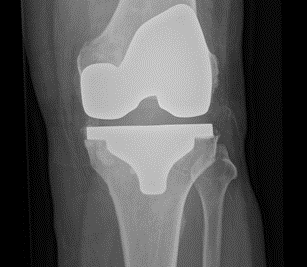Have you been suffering from severe knee pain and are unable to find relief from non-surgical methods like supportive devices, medications, and physical therapy?
If you feel that your day-to-day activities like walking or climbing stairs have become increasingly difficult due to loss of function or chronic pain, it might be time to consider total knee replacement surgery.
If this is the case, a custom knee implant with Conformis technology can deliver a more natural-feeling knee. This is because a Conformis implant is designed uniquely for your body, recreating your natural motions.
What is Conformis Knee Replacement?
Conformis Knee Replacement is a customized knee replacement procedure designed to precisely match the patient's unique anatomy. Unlike traditional knee replacements that use off-the-shelf implants, Conformis utilizes advanced 3D printing technology to create implants that perfectly fit each patient. The customized approach ensures a better fit, improved functionality, and enhanced patient satisfaction.

Pros Conformis Knee Replacement
Personalized Fit
The customized nature of Conformis implants allows for a tailored fit, resulting in a more natural feeling knee and improved joint function.
Enhanced Comfort
The precise fit of Conformis implants reduces the likelihood of implant-related discomforts, such as implant loosening or instability.
Improved Range of Motion
Conformis Knee Replacement aims to restore a patient's range of motion by closely replicating the knee's natural anatomy.
Faster Recovery
With a personalized approach, Conformis Knee Replacement may lead to a quicker recovery and rehabilitation process compared to traditional knee replacement surgery.
Cons Conformis Knee Replacement
Cost
Conformis Knee Replacement surgery can be more expensive than traditional knee replacement surgery.
Pain
While patients report that the knee feels more like a normal, healthy joint and they recover more quickly, some patients may still experience pain after surgery.
Not suitable for all patients
Conformis Knee Replacement surgery may not be suitable for all patients, and some patients may not be good candidates for the procedure.
FAQ's
Who is a Candidate for Conformis Knee Replacement?
Conformis Knee Replacement is suitable for individuals experiencing knee pain due to various conditions, including osteoarthritis, rheumatoid arthritis, or post-traumatic arthritis. Candidates often have symptoms such as persistent pain, limited mobility, and difficulty performing daily activities despite conservative treatment efforts. Consultation with an orthopedic surgeon is necessary to determine if Conformis Knee Replacement is the right option for a specific patient.
How Conformis Knee Replacement Procedure is Performed?
Preoperative Assessment
Before the surgery, the orthopedic surgeon will conduct a thorough evaluation of the patient's knee using imaging techniques and physical examinations.
Custom Implant Design
Based on the patient's unique knee anatomy, a custom implant design is created using advanced computer modeling and 3D printing technologies.
Surgical Procedure
During the surgery, the damaged parts of the knee joint are removed, and the custom Conformis implant is carefully placed in the knee, ensuring a precise fit.
Postoperative Care
Following the procedure, the patient will be closely monitored and provided with pain management techniques and a rehabilitation plan to aid in recovery.
What is the time period for Recovery and Rehabilitation?
Recovery after Conformis Knee Replacement involves a combination of rest, physical therapy, and gradually increasing activity levels. Patients can expect to return to most of their normal activities within three months of surgery. Physical therapy sessions aim to improve strength, flexibility, and range of motion. The orthopedic surgeon and rehabilitation team will guide the patient through the recovery process, ensuring a safe and successful rehabilitation journey.
What are the risks and complications?
As with any surgical procedure, Conformis Knee Replacement carries potential risks and complications. These may include infection, blood clots, implant loosening, nerve damage, or stiffness. However, the risks are generally low, and the benefits often outweigh







0 Comments
For comments please reply here.......